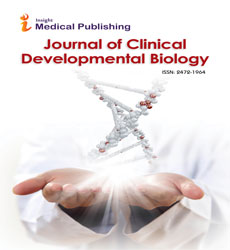Abstract
Ex-vivo Isolation of Cystine Lactose Electrolyte Deficient Agar Positive Organisms from Urine samples.
Urinary tract infections are the most frequent source of nosocomial infections and are difficult to treat and prevent. Most urinary tract infections are benign. However, under certain conditions, depending on the site of infection, recurrence or when the site is already low in resistance, a urinary tract infection may cause complications such as cystitis or chronic prostatitis, or even pyelonephritis. Correct microbial diagnostic at an early stage are essential. Bacteriogical testing is carried out following various steps as enumeration, culture and identification. Cystine Lactose Electrolyte Deficient (C.L.E.D.) medium with Andrade Indicator is recommended for urinary bacteriology, supporting the growth of all urinary differentiations. Swarming of Proteus from urine or other samples on a solid medium can be controlled by restricting the electrolytes was reported by Sandys. Formally swarming of Proteus was controlled by adding alcohol, surface active agent, sodium azide, boric acid, etc. to the medium. Later on Sandys, by replacing mannitot by lactose and sucrose and elevating concentrations of agar and bromo thymol blue. This formulation was further modified by the same authors, called C.L.E.D. (Cytine – Lactose – Electrolyte – Deficient) by deleting and by including L-cystine dependent dwarf colony coliforms. Some of these pathogens also come under the category of non-fomenters. Over many years, non-fomenters have emerged as important opportunistic pathogens in increasing population of patients who are “niche organisms” or “niche pathogens” that primarily caused opportunistic health care associate infection in patients who are critically ill or immunocompromised. The non-fermenters have been shown to cause acute respiratory distress syndrome (ARDS) particularly with respect to Ventilator associated Pneumonia (VAP).
Author(s): Madhuri Dixit
Abstract | Full-Text | PDF
Share this

Google scholar citation report
Citations : 22
Journal of Clinical Developmental Biology received 22 citations as per google scholar report
Abstracted/Indexed in
- Google Scholar
- Directory of Research Journal Indexing (DRJI)
- WorldCat
- Publons
- Secret Search Engine Labs
Open Access Journals
- Aquaculture & Veterinary Science
- Chemistry & Chemical Sciences
- Clinical Sciences
- Engineering
- General Science
- Genetics & Molecular Biology
- Health Care & Nursing
- Immunology & Microbiology
- Materials Science
- Mathematics & Physics
- Medical Sciences
- Neurology & Psychiatry
- Oncology & Cancer Science
- Pharmaceutical Sciences
